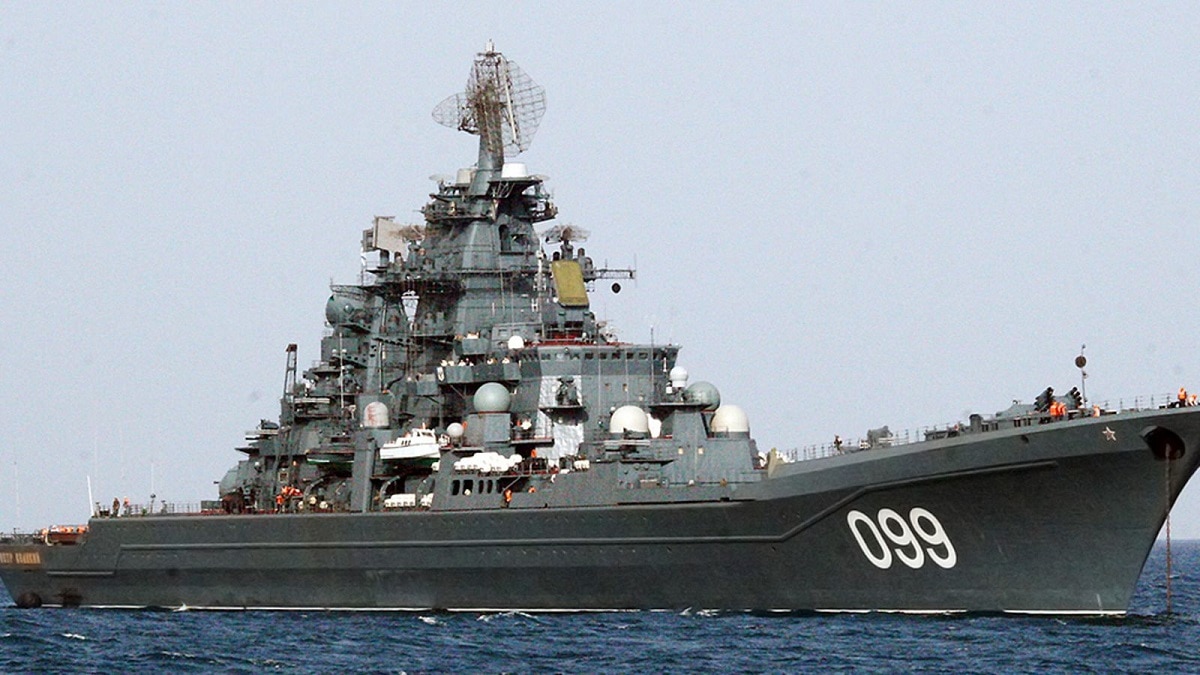Russia has ended the grain export deal under which Ukraine could transport the staple through a safety corridor across the Black Sea.
Moscow had previously agreed not to attack shipping in this corridor, and by ending this agreement, it has basically imposed a naval blockade on Ukraine.
Could NATO Help?
Marinetraffic.com shows absolutely no movement of ships off Ukraine’s Black Sea coast. With Ukraine’s navy either being sunk, captured, or trapped in port, it is unlikely that maritime shipping will resume. Shipowners are unlikely to send their vessels to Ukraine, since the costs for insuring them and their cargoes are prohibitive. The insurer covering the Ukrainian grain shipments has already suspended their policy. Russia appears to be escalating the naval conflict in the Black Sea.
Ukraine has been exploring how to change the route of the safety corridor with the International Maritime Organization. Kyiv hopes to route shipping through Romania’s territorial waters and exclusive economic zone. This could offer some protection. Romania is a NATO member, and any attack on shipping in its waters might implicate Article 5 of the NATO Treaty, which treats an attack on the territory of any NATO member as an attack on all NATO members.
Russia never formally announced a blockade of Ukraine. Instead, it established maritime exclusion zones in the Black Sea. The history of such zones is lengthy and dates back to the First World War. The United States’ Commander’s Handbook on the Law of Naval Operations says these zones “serve to warn neutral vessels and aircraft away from belligerent activities and thereby reduce their exposure to collateral damage and incidental injury.”
Moscow at the very least is showing itself willing to escalate the naval conflict. Previous Russian warnings to mariners noted that certain areas of the Black Sea are dangerous and should be avoided. The Russian Ministry of Defense has now stated that “all ships going across the Black Sea to Ukrainian ports will be considered potential carriers of military-purpose cargoes, starting from 12:00 a.m. Moscow time on July 20, 2023.” Russian state news agency TASS noted that “flag states of such ships will be viewed as participating in the Ukrainian conflict on the side of Kiev.”
Unclear Intentions
The announcement concerning the treatment of flag ships is important because it implies Russia might interfere with neutral shipping on the Black Sea. International law requires all ships to register with a state and fly the flag of that state. The ship falls under the jurisdiction of the state whose flag it flies, and it normally would not be boarded by another state’s navy. Article 110 of the United Nations Convention on the Law of the Sea (UNCLOS) allows a ship to be boarded only if it appears to be engaged in piracy, the slave trade, or unauthorized broadcasting, or if it appears that the ship is without nationality. Russia and Ukraine are both signatories to UNCLOS.
Russian intentions toward ships bound for Ukrainian ports are not clear, but these ships might be stopped and inspected to ensure they are not carrying any war materials for Ukraine. The U.S. Navy employed a similar strategy during the Cuban Missile Crisis, in October 1962, when Soviet ballistic missiles were detected in Cuba. A quarantine was declared around Cuba and ships were stopped for inspection to ensure they were not carrying offensive weapons to Cuba.
Rights of a Belligerent
Russia may be exercising its belligerent right to visit and search neutral shipping. A belligerent can declare certain types of cargo to be contraband, and it is expected to publish a list of such items so neutral carriers can comply and avoid having their cargo or ships seized.
This might simply be more Russian brinkmanship. Russia may have no intention of boarding and searching ships headed for Ukraine. Rather, these announcements might aim at deterring any shipping toward Ukraine and keeping insurance costs prohibitively expensive. Russia has been hitting Ukrainian port facilities with drone and missile strikes nightly from July 18-20. It is unclear whether these attacks are intended to prevent further grain deliveries or are retaliation for attacks by aerial and semi-submersibles drones on the Russian Black Sea Fleet at Sevastopol and on the Kerch Bridge in Crimea. Regardless of its motivation, Russia has imposed a blockade on Ukraine.
Lt. Col. Brent Stricker, U.S. Marine Corps, serves as a military professor of international law at the Center for Naval Warfare Studies, U.S. Naval War College. The views presented are those of the author and do not necessarily reflect the policy or position of the U.S. Marine Corps, the U.S. Navy, the Naval War College, or the Department of Defense.
From 19FortyFive
The Second American Civil War Has Begun

